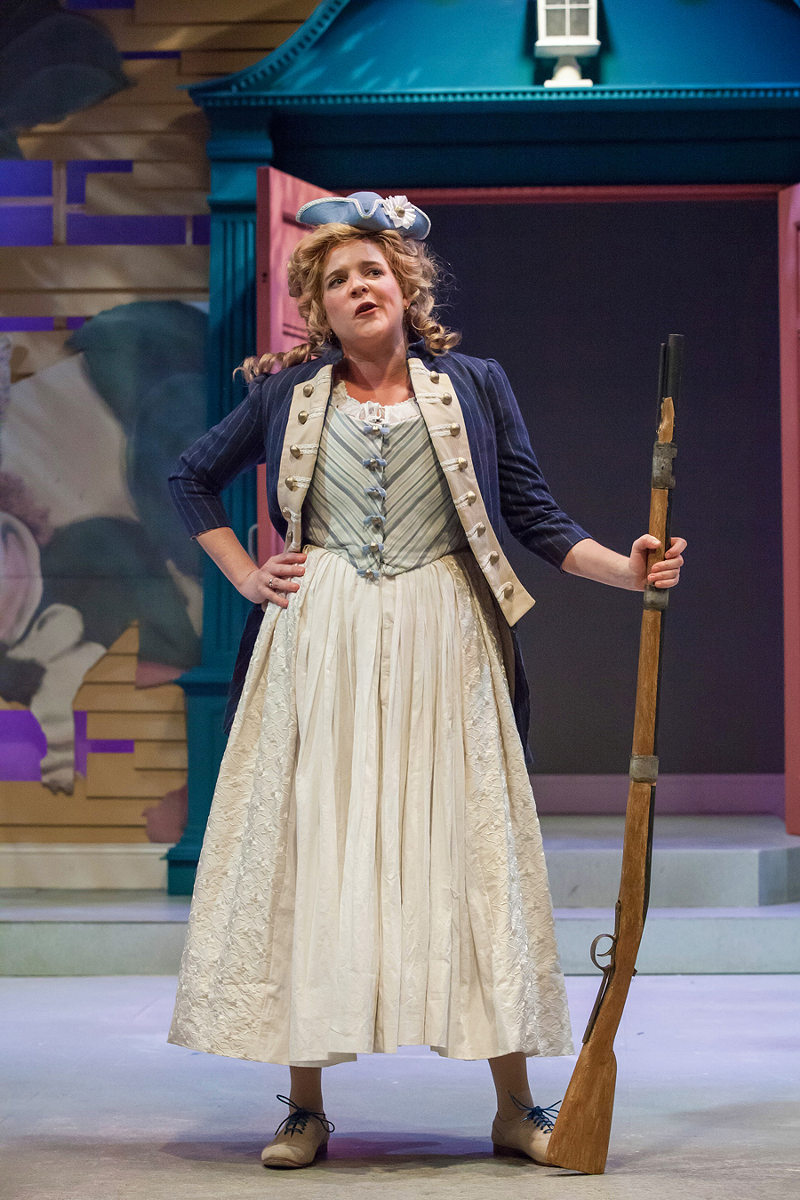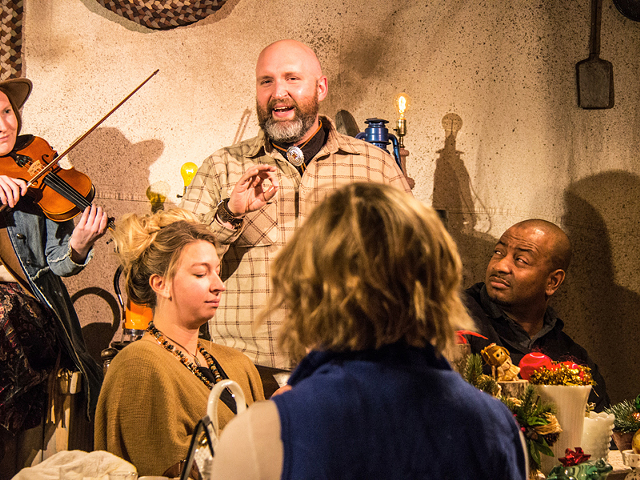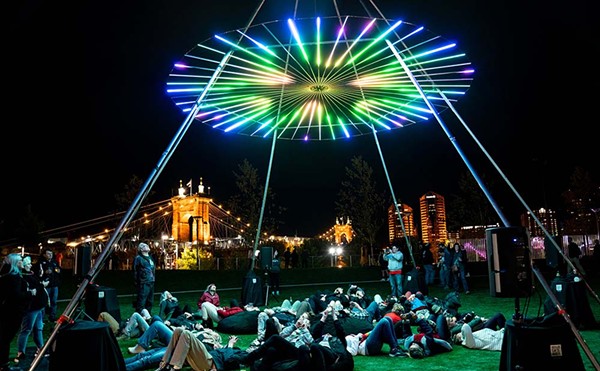The comedy Much Ado About Nothing is among Shakespeare’s funniest plays and Cincinnati Shakespeare Company’s current production, running through Dec. 10, fires on all cylinders.
There is a fine line between love and hate. Beatrice (Miranda McGee) and Benedick (Jeremy Dubin) are treading that line carefully. The smirking wisecrackers have sworn off marriage, but their friends can see they’re a match and hatch plots to change their hearts (“Some Cupid kills with arrows, some with traps”).
This is McGee’s eighth season with Cincy Shakes, and Beatrice is surely among her best-suited roles. This Beatrice is still as off-color and tomboyish as, for example, McGee’s “drunk Santa” from the company’s annual Every Christmas Story Ever Told (And Then Some). But Much Ado presents us not only the best of her humor, but also the depth of her heart as well. Opposite Beatrice is Benedick, whose wit and cunning suit Dubin perfectly — Benedick can be haughty and self-deprecating, but Dubin’s slapstick keeps Benedick down to earth. Together Dubin and McGee are word-perfect and snappy, with an Abbott and Costello-like banter and a surprising amount of chemistry.
While Beatrice and Benedick flirt and gambol, there is a second story at work. Beatrice’s cousin Hero (Maggie Lou Rader) is engaged to be married to Claudio (Justin McCombs). Through some devilry by “plain-dealing villain” Don John (Geoffrey Warren Barnes II), Claudio is convinced that Hero has been unfaithful and the wedding is off. In her program notes, director Sara Clark calls this play “a beautiful confection, with (surprise!) some actual substance in its middle,” which rings true as we watch multiple hearts break in turn: Hero’s, Claudio’s, their families’, their friends’.
Rader is a sprightly Hero, sweet as a cupcake and dressed to match, and we feel her shock and horror as she is quite literally cast to the ground. While we want to hate her betrothed for scorning her, McCombs plays Claudio as so gullible and wounded that we are ready to forgive him as soon as Shakespeare lets us. Barry Mulholland also stands out as Hero’s doting father — Leonato is not as easily taken in by hearsay, but his doubt is heartrending to watch.
Though Much Ado About Nothing was written around 1600 (when “nothing” could also mean gossip or eavesdropping), Clark has chosen to set the stage in 1780s post-Revolutionary War New York. Gone are the British accents — in fact, the cast adlibs many anachronistic moments of contemporary dialogue and fist-bumping, to the audience’s delight. The show begins with a pretty rendition of a suffragette tune, “We As Women,” performed capably by the females of the cast. However, as the pious song winds down, a dance party replaces it, including colored lights and a thumping beat that belong neither to 1600 nor to 1800. (The men of the ensemble have their own chance to boogie later, when a military procession similarly dissolves into something more modern.) Likely a nod to Broadway smash Hamilton, but not derivative of it -— the fresh coat of paint adds fun to the production.
Amanda McGee’s stunning costumes are as full of anachronisms as the dance parties and pull the whole shtick together. For instance, there are sunglasses, asthma inhalers, razor scooters. Much Ado is not one of Shakespeare’s history plays. It isn’t about any specific war or epoch — this story is concerned with the love we humans have been falling in and out of since the dawn of our time.
In less than a year, Cincy Shakes will unveil a brand new theater, moving like a hermit crab from a shell that it has outgrown. Until then, the scenic design of Much Ado reflects how it has learned to capitalize on the restrictive space of its home on Race Street. In this production, scenic designer Shannon Moore has taken a minimal approach, creating a gazebo-style roof instead of closing off the top of the stage, using planks to suggest a wall while still allowing light to pass through. The design gives an effect of more space than is there and keeps the stage as breezy and fun as the show.
MUCH ADO ABOUT NOTHING, produced by the Cincinnati Shakespeare Company, continues through Dec. 10. More info: cincyshakes.com.






